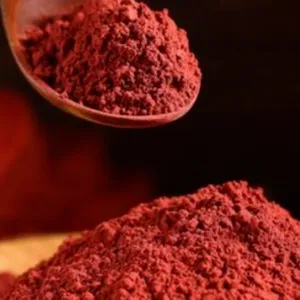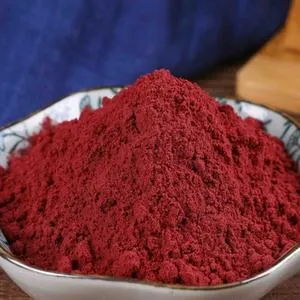Does red yeast rice lower cholesterol? Cholesterol is a fatty substance found in the blood that plays a crucial role in many bodily functions. However, high levels of cholesterol, particularly low-density lipoprotein (LDL) cholesterol, can increase the risk of cardiovascular diseases such as heart attacks and strokes. As a result, many individuals seek out natural remedies to lower their cholesterol levels. One such remedy that has gained attention is red yeast rice, a traditional Chinese medicine made by fermenting rice with a specific strain. This article aims to explore the potential of red yeast rice in reducing cholesterol levels and discuss its efficacy based on available scientific evidence.

What is Red Yeast Rice?
Red yeast rice, known as Hong Qu in Chinese, has been used for centuries in Traditional Chinese Medicine to promote cardiovascular health. It contains several naturally occurring compounds, including monacolins, particularly monacolin K, which is chemically identical to lovastatin, a prescription statin medication used to lower cholesterol. In addition to monacolins, red yeast rice also contains antioxidants, phytosterols, and isoflavones, which may contribute to its potential cholesterol-lowering effects.
Scientific Evidence:
Several studies have investigated the efficacy of red yeast rice in lowering cholesterol levels. A notable study published in the Annals of Internal Medicine in 2009 examined the effects of red yeast rice on individuals with mild to moderate hyperlipidemia (high blood lipid levels). The results demonstrated that red yeast rice supplementation significantly decreased LDL cholesterol levels compared to a placebo group.
Another systematic review and meta-analysis published in the European Journal of Preventive Cardiology in 2016 analyzed 20 clinical trials involving red yeast rice. The review concluded that red yeast rice supplementation was associated with a significant reduction in total cholesterol, LDL cholesterol, and triglyceride levels compared to a placebo, with no major adverse effects reported.
However, it's important to note that red yeast rice products can vary in their composition and potency due to differences in fermentation processes. Consequently, the individual effectiveness of different red yeast rice supplements may vary. In addition, the safety and quality of commercially available red yeast rice products can vary, as some may contain higher levels of monacolin K than others or may be adulterated with other contaminants.
Potential Side Effects and Interactions:
Red yeast rice, particularly when it contains monacolin K, has a similar mechanism of action to statin medications, which can inhibit the enzyme responsible for cholesterol synthesis. Red yeast rice is not suitable for simultaneous use with statin drugs.

Overall, based on the available scientific evidence, red yeast rice shows promise as a natural remedy for lowering cholesterol levels. Its beneficial effects can potentially be attributed to the presence of monacolins, antioxidants, and other bioactive compounds. However, it is essential to use red yeast rice products with caution and under the guidance of a healthcare professional. Lifestyle modifications such as adopting a healthy diet, exercising regularly, and maintaining a healthy weight should also be emphasized as part of a comprehensive approach to managing cholesterol levels.

 English
English
 Español
Español
 Português
Português
 русский
русский
 français
français
 日本語
日本語
 Deutsch
Deutsch
 Tiếng Việt
Tiếng Việt
 Italiano
Italiano
 Nederlands
Nederlands
 ไทย
ไทย
 Polski
Polski
 한국어
한국어
 Svenska
Svenska
 magyar
magyar
 Malay
Malay
 বাংলা
বাংলা
 Dansk
Dansk
 Suomi
Suomi
 हिन्दी
हिन्दी
 Pilipino
Pilipino
 Türk
Türk
 Gaeilge
Gaeilge
 عربى
عربى
 Indonesia
Indonesia
 norsk
norsk
 اردو
اردو
 čeština
čeština
 Ελληνικά
Ελληνικά
 Українська
Українська
 Javanese
Javanese
 فارسی
فارسی
 नेपाली
नेपाली
 Burmese
Burmese
 български
български
 ລາວ
ລາວ
 Latine
Latine
 Қазақ
Қазақ
 Euskal
Euskal
 Azərbaycan
Azərbaycan
 slovenský
slovenský
 Македонски
Македонски
 Lietuvos
Lietuvos
 Eesti Keel
Eesti Keel
 Română
Română
 Slovenski
Slovenski
 Српски
Српски
 Беларус
Беларус
 Hrvatski
Hrvatski
 Монгол хэл
Монгол хэл







